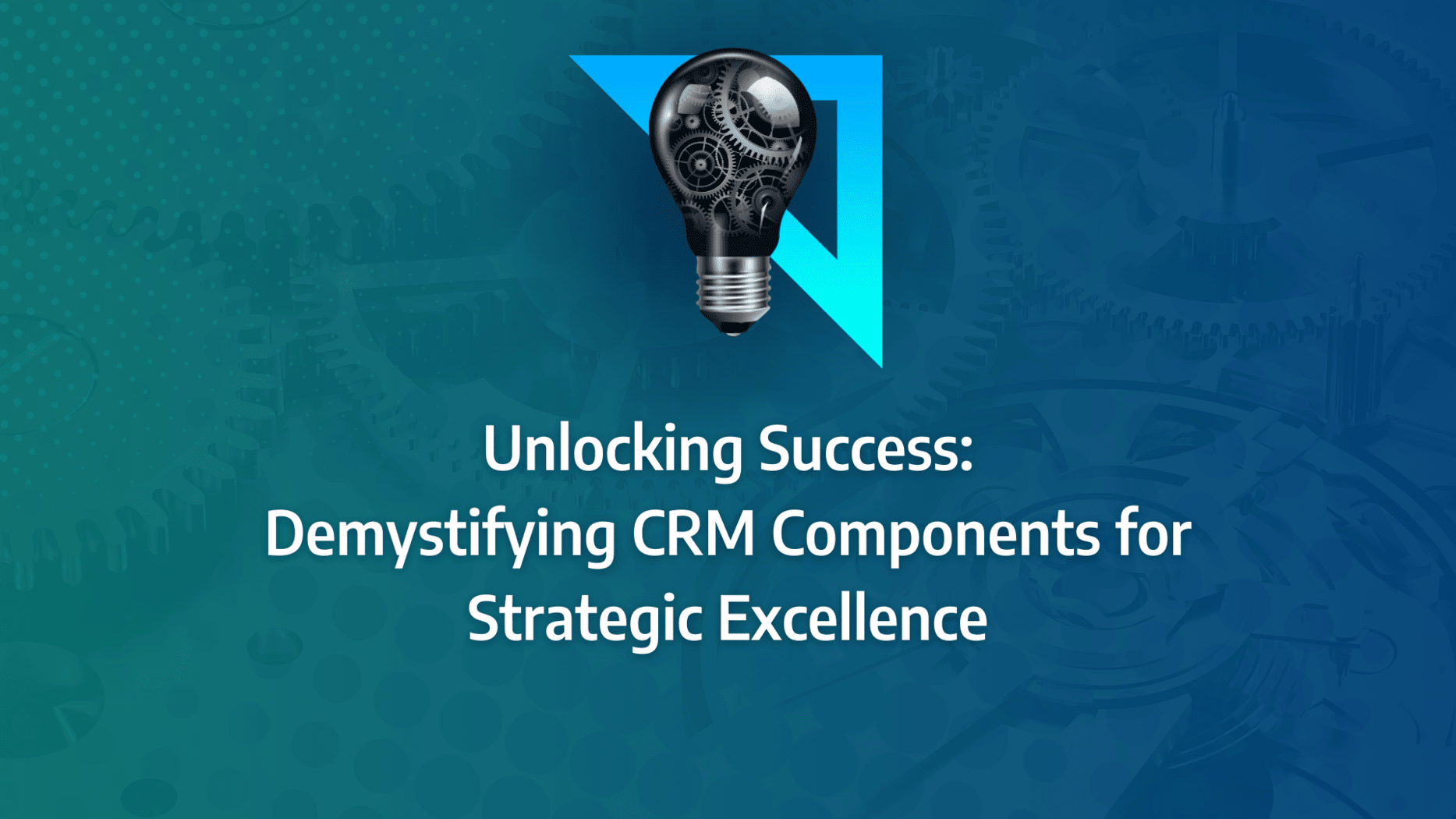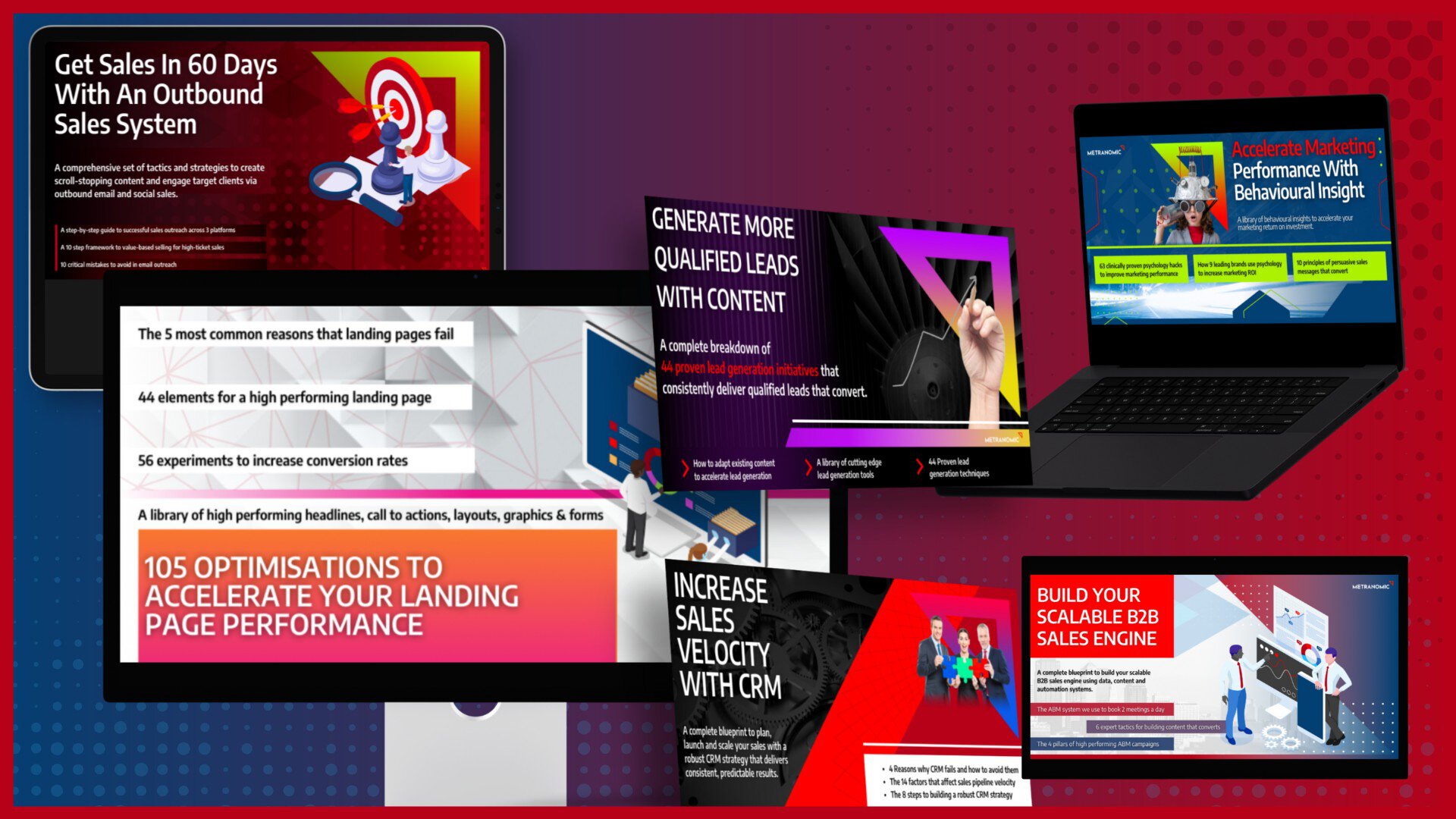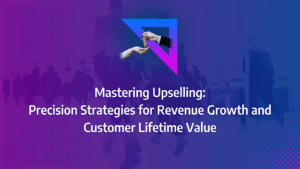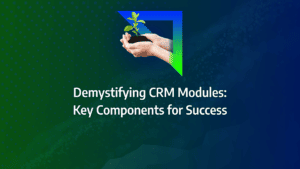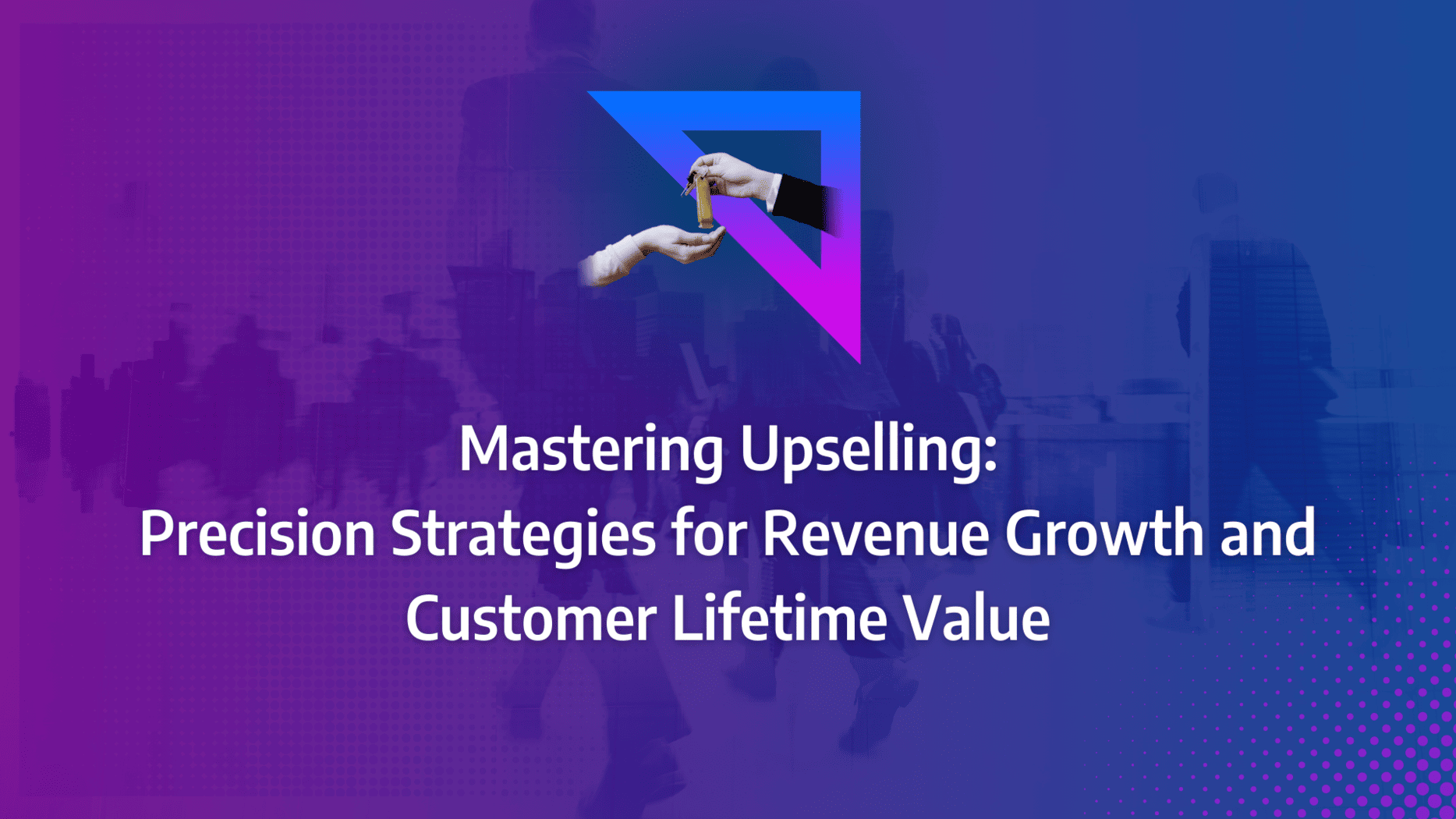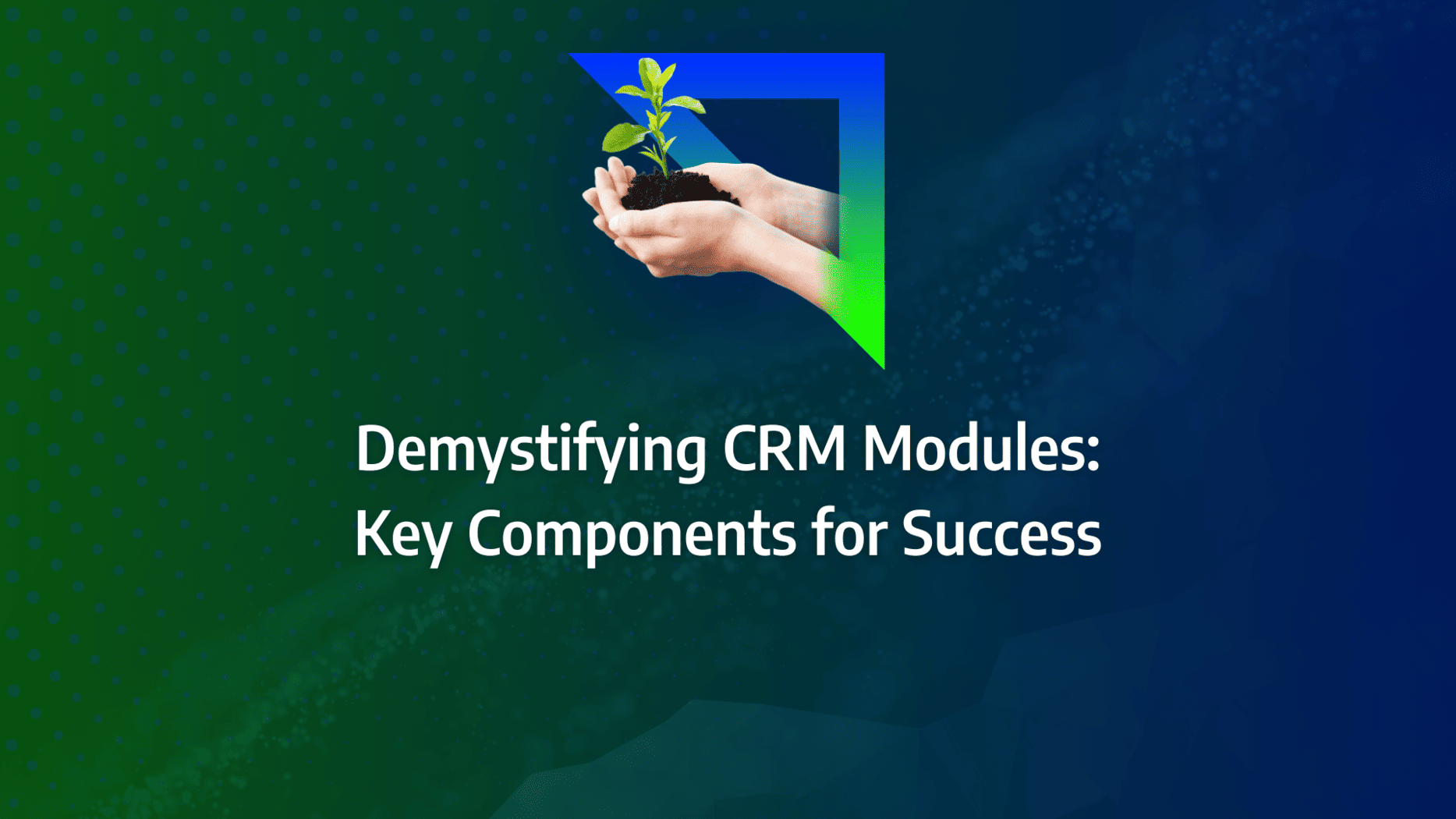Unlocking the full potential of your CRM system can seem like a daunting task, especially when faced with complex components and endless configurations. But what if you could break down these complexities into manageable parts? Imagine a CRM system that not only organises your customer data but also enhances your strategic decision-making and drives your business forward.
In this guide, we’ll demystify the core components of CRM, showing you how each piece fits together to form a powerful tool for success. By the end, you’ll have a clear, actionable plan to optimise your CRM system, ensuring it works seamlessly to support your business goals.
- Understand the Core CRM Components: Recognise the importance of contact management, sales management, customer service, and marketing automation as the fundamental pillars of a successful CRM system.
- Optimise Contact Management: Leverage your CRM’s contact management features to maintain accurate customer data and streamline communication, ensuring stronger relationships and better customer experiences.
- Enhance Sales Management: Use sales management tools within your CRM to track leads, manage pipelines, and empower your sales team to close deals more efficiently.
- Elevate Customer Service: Integrate customer service functions into your CRM to manage support requests effectively, boost customer satisfaction, and foster long-term loyalty.
- Streamline Marketing Automation: Automate your marketing efforts through CRM to personalise campaigns, enhance engagement, and achieve better ROI on your marketing initiatives.
- Integrate CRM Components Seamlessly: Ensure all CRM components work together harmoniously, creating a unified system that maximises efficiency and supports your strategic objectives.
How CRM Can Benefit Your Business
As your company expands, so does the complexity of managing your customer database. What once seemed straightforward becomes increasingly challenging as your communications with customers—both potential and existing—become scattered across various channels. Critical conversations may be buried in email threads, dispersed across spreadsheets, or even lost on Post-it notes, leading to fragmented and inconsistent interactions. This disorganisation doesn’t just create inefficiencies; it directly impacts your bottom line by causing missed opportunities and lost revenue.
The solution to these challenges lies in implementing a robust CRM system. By centralising all your customer data and streamlining your communication processes, a CRM system can dramatically improve your business operations. According to a report by Software Advice, 74% of CRM adopters experienced enhanced access to customer data, while 61% of sales professionals found that CRM systems facilitated easier access to vital customer information. Furthermore, a study conducted by Capterra revealed that 47% of CRM users saw significant improvements in customer retention and satisfaction.
What Matters Most?
Prioritising user experience during CRM selection is vital; clients often find that an intuitive interface significantly boosts user adoption and improves overall data quality. Aligning CRM strategies with customer experience goals typically leads to a more integrated approach to relationship management, enhancing satisfaction and loyalty. Moreover, focusing on data quality and management practices ensures that organisations can fully leverage their CRM investments, resulting in more effective marketing and sales initiatives.Get In Touch
The Benefits of CRM
1. Enhanced Knowledge of Customers
A CRM system serves as a powerful tool by consolidating all critical information about your contacts in one accessible place. This capability provides your sales, marketing, and customer service teams with a distinct competitive advantage. With a CRM system, they not only have access to essential details such as a contact’s full name, email address, phone number, and social media profiles but also deeper insights like their role within their company, their relationships with other contacts in your database, their preferred language, and even personal milestones such as birthdays.
Having this wealth of information readily available allows for highly personalised communication, making it easier to engage with contacts in a manner that resonates with them. Additionally, CRM systems enable the tracking of all interactions, including activities, projects, sales, live chat messages, email exchanges, invoices, orders, contracts, and customer service requests. This comprehensive view allows your team to better understand who your contacts are and what they truly want, leading to more effective and meaningful interactions.
2. Improved Segmentation
No one wants to engage with a faceless, generic audience. Businesses thrive when they can tailor their communications to specific groups, and this is where CRM components truly shine. By allowing you to segment your contacts—both customers and prospects—into targeted audiences, a CRM system makes it simple to create focused, effective campaigns. Whether you’re running a customer marketing initiative or an account-based marketing campaign, segmented lists allow for a more precise approach, ensuring that your messaging and tactics are relevant and impactful.
With a CRM system, you can break down your data by various categories and criteria, enabling you to analyse your sales process and lead pool with greater precision. When you know exactly who you’re addressing, you can tailor your offers, strategies, and even your sales pitches to match the needs and interests of your audience. In short, a well-implemented CRM system helps you identify who is truly interested in your offerings, who needs more nurturing, and who may no longer be a viable lead.
3. Increased Customer Retention
While attracting new customers is essential, retaining existing ones is equally important—and a CRM system is invaluable in this regard. The system offers numerous features designed to boost customer retention, such as reminders for appointments and follow-up emails, ensuring you never miss an opportunity to engage with your clients.
Moreover, CRM systems can prompt you to reach out to customers who haven’t been contacted recently, preventing them from feeling neglected. This proactive approach helps maintain strong relationships with your customer base, fostering loyalty and reducing churn. By leveraging the elements of CRM, you can ensure that your customers feel valued and supported, which ultimately contributes to long-term business success.
Source: FiveCRM
4. Enhanced Anticipation of Customer Needs
In business, the ability to foresee and meet customer expectations is invaluable. Understanding a customer’s buying habits and preferences enables businesses to strategically cross-sell or upsell, ultimately driving more revenue. One of the primary benefits of CRM components is the capability to empower sales teams to sell more efficiently and with greater precision.
By leveraging the detailed customer interaction history available through a CRM system, sales representatives can anticipate customer needs at every stage of the customer journey. Whether it’s knowing what products they’ve purchased, which contracts they’ve engaged with, or their demonstrated buying behaviours, this insight allows your team to proactively present new or enhanced offers at the most opportune moments.
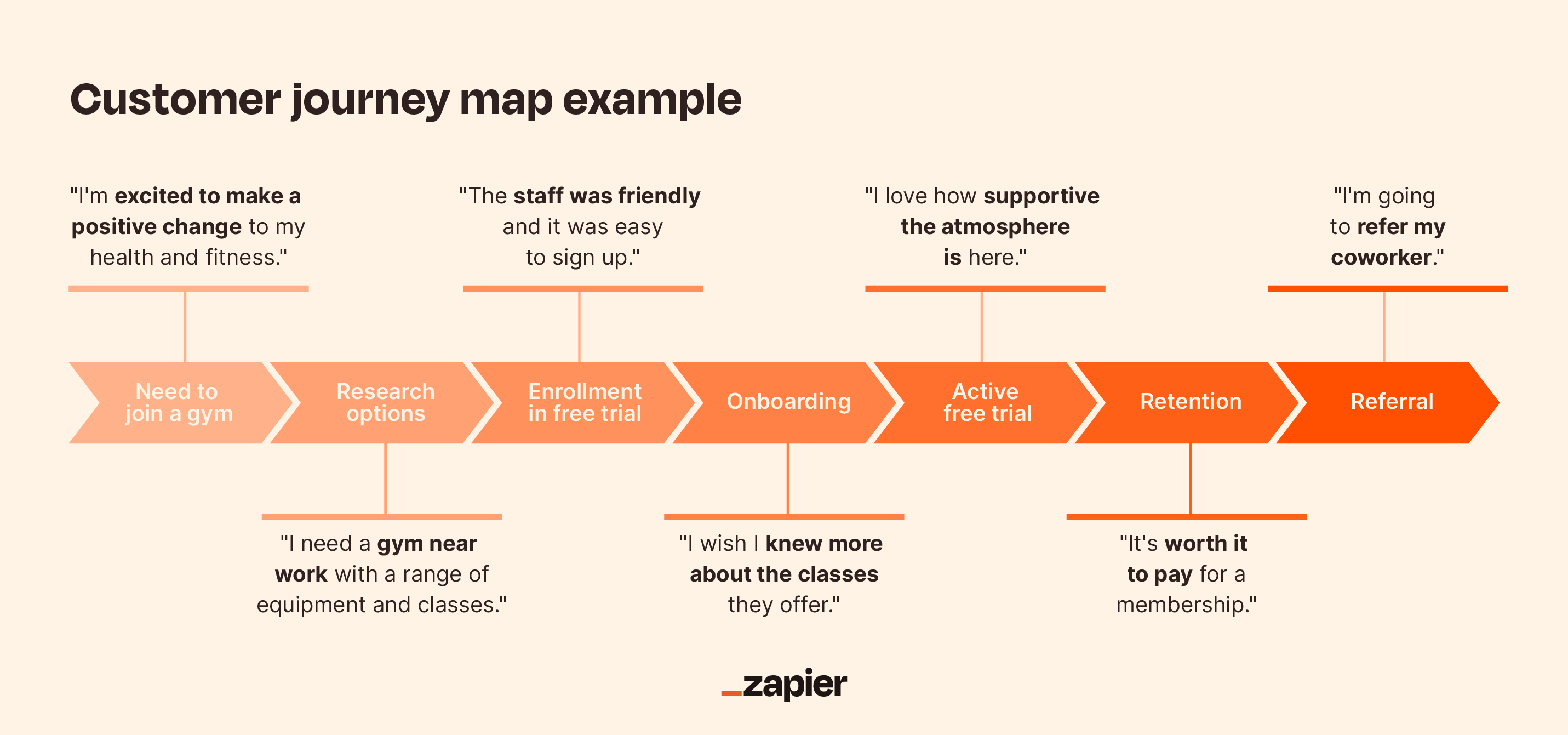
Moreover, CRM system components are crucial in delivering exceptional customer service. The ability to access a comprehensive interaction history ensures that customer service representatives can respond swiftly and appropriately to any issues. With just a few clicks, they can see if a customer has had previous problems, how those issues were resolved, and whether the customer was satisfied with the outcome. This not only enables your team to resolve current concerns efficiently but also offers an opportunity to rebuild trust and enhance the overall customer experience by addressing past grievances.
5. Accelerated and Personalised Communication
In today’s fast-paced business environment, prompt and personalised communication is a hallmark of professionalism. A CRM system, equipped with various CRM components, is designed to streamline this process, saving both your time and that of your customers.
The system provides a range of customisable, ready-to-use templates for emails, letters, documents, proposals, quotes, invitations, and newsletters. This means that your team can quickly draft and dispatch communications without starting from scratch each time. Additionally, a CRM system allows for the scheduling of SMS and emails, enabling these to be sent automatically at predetermined times, whether weeks or even months in advance.
When dealing with customer service requests, speed is of the essence. With all the necessary contact interaction history accessible within the CRM, your team can swiftly personalise their responses, offer quick solutions to recurring issues, and provide direct links to FAQs or instructional videos. Furthermore, the integration of phone call functionalities directly within the CRM system further accelerates the communication process, ensuring that your customers receive timely and effective support.
6. Robust Data Privacy and Compliance
Data privacy has become a critical concern for businesses, especially in light of the General Data Protection Regulation (GDPR) enforced across the European Union. Ensuring compliance with these stringent data protection regulations is not only a legal obligation but also essential for maintaining customer trust.
A well-implemented CRM system, with inbuilt GDPR-related functionalities, is indispensable in this regard. The primary benefit of using a CRM in the context of data privacy is the significant reduction in time and effort required to remain compliant. Managing GDPR requirements manually is time-consuming and fraught with the potential for errors, which could lead to serious legal repercussions.
A CRM system simplifies this process by enabling you to easily obtain and document your customers’ consent to store and use their personal information. The system can automatically send notifications to new contacts, informing them of data storage practices, and it can manage customer subscriptions to various communication preferences. Additionally, CRM components allow for the bulk updating of personal details across groups of contacts, ensuring that all data is accurate and up-to-date.
By automating these processes, a CRM system not only ensures compliance but also enhances customer trust by demonstrating a commitment to handling their data with care and respect.
What essential components should I look for in a modern CRM system?
Historically, CRM systems were primarily used to store customer data. However, in today’s rapidly evolving business environment, CRM software has transformed into an all-encompassing solution that goes far beyond simple data storage. Modern CRM systems are designed to be end-to-end tools that drive business success by enhancing a wide range of processes. While contact management remains the top function, utilised by 94% of CRM users, other critical functionalities include lead nurturing (65%) and email marketing coupled with sales forecasting (59%).
Human Resource Management
One of the often-overlooked elements of CRM is its role in human resource management. Effective management and optimisation of human resources are crucial for any organisation, as employees represent its most valuable asset. A CRM system assists in implementing strategic people management by analysing skills and aligning them with organisational needs. This enables the development and execution of strategies that foster growth and employee development, ensuring that the organisation remains agile and competitive.
Customer Service
Customer service is another fundamental component of CRM systems. By gathering and managing customer information, including purchase patterns and feedback, a CRM system allows various departments to access relevant data. This shared access ensures that teams can better understand customer needs and address any issues or complaints more effectively. Enhanced customer service capabilities within CRM systems are critical for maintaining customer satisfaction and fostering long-term relationships.
Sales Force Automation
Sales force automation is an indispensable part of CRM systems, designed to streamline and optimise the sales process. This component includes functionalities such as sales forecasting, sales processing, and tracking of potential interactions. By automating these tasks, a CRM system not only identifies revenue generation opportunities but also provides detailed analysis of sales forecasts and workforce performance. This enables sales teams to focus on high-value activities that drive growth.
Lead Management
Effective lead management is crucial for businesses that rely on sales-driven revenue. CRM systems excel in tracking and managing sales leads, ensuring their proper distribution across the sales team. This process includes everything from campaign management to the creation of custom forms and the finalisation of mailing lists. By analysing customer purchase patterns, CRM systems help identify potential sales leads, allowing sales teams to prioritise their efforts and improve conversion rates.
Marketing
Marketing is another critical area where CRM systems provide significant value. By enhancing the effectiveness of marketing strategies, CRM systems ensure that campaigns are targeted, personalised, and impactful. Key sub-components of the marketing function within a CRM include list management, campaign management, activity management, document management, call management, and the ability to execute mass email campaigns. These tools allow marketing teams to execute sophisticated strategies that drive customer engagement and revenue growth.
Source: Finances Online
Workflow Automation
Automation is a core feature of modern CRM systems, designed to streamline processes and improve overall efficiency. By automating repetitive tasks, CRM systems reduce unnecessary expenditures and eliminate the redundancy of manual processes. One of the major purposes of CRM systems is to minimise paperwork and operational inefficiencies, allowing teams to focus on strategic tasks that add value to the business.
Analytics
Analytics is a powerful component of CRM systems, offering the ability to analyse and interpret collected data for actionable insights. By presenting data through histograms, charts, figures, and diagrams, CRM systems enable businesses to visualise trends and make informed decisions. This analytical capability is essential for driving business growth and ensuring long-term prosperity.
Reporting
Accurate and flexible reporting is another vital element of CRM systems. A robust CRM system provides comprehensive reporting capabilities, allowing businesses to generate precise and varied reports. These reports are crucial for effective forecasting and strategic planning. Additionally, the ability to export reports to other systems ensures that information can be easily shared and integrated across the organisation.
Customer Data Management
Customer Data Management is a critical component of any CRM system, focusing on the collection, storage, and organisation of customer information. This function ensures that every interaction and data point, from contact details to purchase history and communication records, is systematically recorded and readily accessible. Effective customer data management within your CRM components provides valuable insights into customer behaviour and preferences, enabling more personalised marketing strategies and enhanced customer service.
For effective customer data management, your CRM system should capture and organise the following key information:
- Names and contact details (email, phone)
- Company information (industry, size)
- Purchase and interaction history
- Preferences and preferred communication channels
With this comprehensive data at your disposal, your business can:
- Identify and track potential customers and leads
- Manage and nurture existing customer relationships
- Tailor communication and marketing efforts for greater impact
- Improve customer service by having pertinent information readily available
Customer Interaction Management
Customer Interaction Management is another pivotal component of CRM systems, focusing on tracking and managing all forms of communication between your business and its customers. This includes phone calls, emails, live chats, social media interactions, and in-person meetings. By meticulously monitoring these touchpoints, your CRM system components ensure that communication remains consistent and effective, enabling you to address customer inquiries promptly and foster stronger, more reliable relationships.
Proper management of customer interactions within your CRM system allows you to:
- Implement lead scoring and qualification to prioritise high-potential leads
- Manage opportunities by tracking sales pipeline progress
- Generate accurate quotations and proposals
- Automate sales tasks to improve efficiency
- Monitor sales performance through detailed reporting and analytics
These capabilities enable your business to:
- Close deals more quickly by streamlining the sales process
- Focus on the most qualified leads for better outcomes
- Enhance forecasting and improve overall sales performance through data-driven analysis
Sales and Marketing Automation
Sales and Marketing Automation is designed to optimise business processes, making them more efficient and effective. This CRM component includes tools for automating repetitive tasks such as email campaigns, follow-up reminders, and lead scoring. By automating these processes, businesses not only save time and reduce errors but also ensure that their marketing efforts are both targeted and personalised. The result is higher conversion rates and increased sales, directly impacting the bottom line.
Automation within your CRM system components can streamline operations, allowing your teams to focus on more strategic initiatives, thereby driving growth and enhancing customer engagement.
Customer Support and Service
Customer Support and Service is a fundamental element of CRM systems, dedicated to enhancing the customer service experience. This component includes tools for ticketing, case management, and knowledge bases, all designed to help support teams resolve issues swiftly and efficiently. Effective customer support is crucial for ensuring that customers receive timely and satisfactory responses to their queries and problems, which in turn fosters customer loyalty and satisfaction.
A robust CRM system equipped with these support tools enables your business to manage customer service operations seamlessly, ensuring that every customer interaction contributes positively to the overall customer experience.
Our Tactical Recommendations
From our experience, integrating your CRM with existing sales processes is crucial; seamless workflows enhance productivity and deliver better results. Leveraging advanced analytics within your CRM provides valuable insights into customer behaviour, allowing teams to make data-driven decisions that improve targeting strategies. Additionally, training teams to utilise social selling through CRM tools enhances outreach efforts, often leading to improved lead generation and engagement with potential clients.Get In Touch
The Future of CRM: What Lies Ahead
By the end of 2020, Customer Relationship Management (CRM) software revenues surpassed those of database management systems, establishing CRM as the largest software market globally. With projections indicating revenues will exceed $80 billion by 2025, CRM is poised to remain one of the fastest-growing software markets in the world.
1. The Role of IoT in Proactive Customer Service
The Internet of Things (IoT) has become a transformative force across nearly every industry, and CRM is no exception. In 2008, only 12% of businesses utilised cloud-based CRM systems, a figure that has skyrocketed to 87%. The integration of IoT with CRM components offers enhanced capabilities for organisations, particularly in driving sales and improving customer service and satisfaction. IoT-enabled CRM systems can analyse data from connected devices, allowing businesses to address and resolve issues remotely. By 2020, it was reported that approximately 12.86 billion IoT devices were in use within the consumer segment, underscoring the growing importance of this technology in CRM.
2. The Rise of Mobile CRM
The increasing use of mobile CRM has had a notable impact on employee productivity, with data suggesting a 15% improvement. As more than 91% of companies with ten or more employees now rely on CRM system components, ensuring accessibility across various devices and platforms has become critical. Mobile CRM provides dynamic access, making it a valuable asset for sales representatives in the field. Currently, 48% of users access CRM through their smartphones, and 45% through tablets, demonstrating the significant shift towards mobile CRM in daily business operations.
3. AI-Powered CRM: The Next Frontier
Artificial intelligence (AI) integration within CRM systems is driving substantial revenue growth, with estimates suggesting that AI adoption in CRM activities will generate an additional $394 billion in revenue in the United States alone by 2021. AI-powered CRM is becoming increasingly prevalent, with advancements in text, facial, and voice recognition technology. These developments enable users to interact with CRM systems using voice commands, making CRM data accessible from any device, at any time. For example, Salesforce’s Einstein platform empowers organisations to retrieve both simple and complex information through voice commands, showcasing the potential of AI in enhancing CRM functionalities.
4. The Era of Hyper-Individualisation
Customer experience is rapidly becoming the key brand differentiator, surpassing even product pricing. By 2020, businesses began to prioritise hyper-individualisation, which focuses on delivering highly personalised customer experiences that make customers feel valued and understood. According to a study by Accenture, approximately 75% of consumers are more likely to purchase from a retailer if they feel recognised, receive relevant recommendations, and have their purchase history remembered. This shift towards hyper-individualisation is driving companies to leverage CRM components that facilitate deeper customer insights and more tailored interactions.
